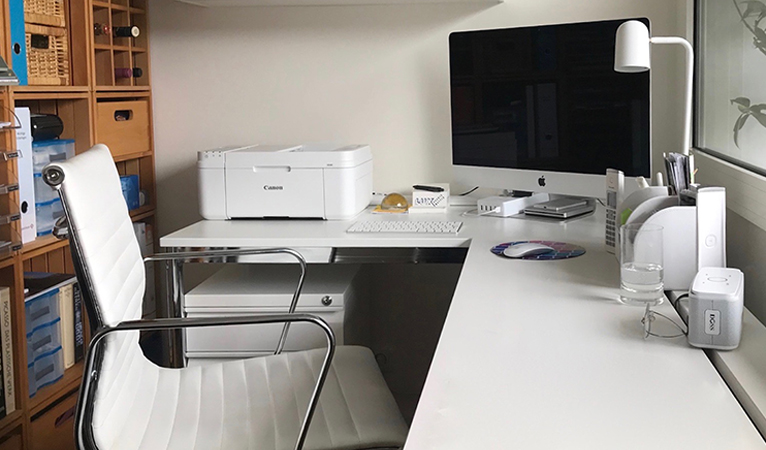Reverse Mortgage Daily: A Step-by-Step Guide
Reverse mortgages offer an innovative way for senior homeowners to leverage the equity in their homes. This financial product allows homeowners aged 62 and older to convert a portion of their home equity into cash without having to sell their home or take on additional monthly payments. Unlike traditional mortgages, where the homeowner makes payments to the lender, with a reverse mortgage, the lender makes payments to the homeowner.
The Basics of Reverse Mortgage Daily
Reverse Mortgage Daily is a vital resource for staying informed about the latest developments in the reverse mortgage industry. This platform provides daily news, updates, and expert insights into market trends, policy changes, and best practices. For anyone involved in or considering a reverse mortgage, Reverse Mortgage Daily is an invaluable tool for staying current and making informed decisions.
Step-by-Step Guide to Reverse Mortgages
1. Evaluate Your Eligibility
To qualify for a reverse mortgage, you must be at least 62 years old and own your home outright or have a low mortgage balance that can be paid off at closing with proceeds from the reverse loan. The home must be your primary residence, and you must have the financial ability to maintain the property and pay for property taxes and insurance.
2. Learn About Different Types of Reverse Mortgages
There are three main types of reverse mortgages:
Home Equity Conversion Mortgage (HECM): This is the most common type and is insured by the Federal Housing Administration (FHA). It offers several payment options, including lump sum, monthly payments, or a line of credit.
Proprietary Reverse Mortgages: These are private loans backed by the companies that develop them. They are often available to homeowners with high-value homes and can provide larger loan advances than HECMs.
Single-Purpose Reverse Mortgages: Offered by some state and local government agencies and nonprofit organizations, these are the least expensive option. They can only be used for specific purposes, such as home repairs or property taxes.
3. Reverse Mortgage Counseling
Before you can proceed with a reverse mortgage, the Department of Housing and Urban Development (HUD) requires that you undergo reverse mortgage counseling. This counseling session is crucial for understanding the complexities and responsibilities of taking on a reverse mortgage. A HUD-approved counselor will explain the terms, costs, financial implications, and possible alternatives. They will also assess whether a reverse mortgage is the right fit for your financial situation.
4. Apply for a Reverse Mortgage
Once you have completed the counseling, you can apply for a reverse mortgage. Choose a lender that offers competitive rates and has a good reputation. You will need to provide the lender with essential documents, such as proof of age, verification of home ownership, information on existing mortgage balances, and evidence of your ability to maintain the property.
5. Undergo a Financial Assessment
Lenders conduct a financial assessment to ensure you can meet the obligations of the reverse mortgage, including paying property taxes, insurance, and maintenance costs. This step is essential to protect both the lender and the borrower from future financial difficulties.
6. Appraisal and Property Valuation
The lender will order an appraisal to determine the current market value of your home. The appraisal process includes an inspection of the property to ensure it meets HUD standards and to identify any necessary repairs. The amount you can borrow depends on the appraised value of your home, your age, and current interest rates.
7. Closing the Loan
After the appraisal and underwriting process are complete, you will proceed to closing. During the closing, you will review and sign all the necessary documents, including the loan agreement, and receive your funds. The funds can be disbursed as a lump sum, monthly payments, a line of credit, or a combination of these options, depending on your chosen payment plan.
8. Managing Your Reverse Mortgage
Once the reverse mortgage is in place, it is crucial to manage it responsibly. Keep up with property taxes, insurance, and maintenance to comply with the loan terms. Regularly review your loan statements and stay informed about any changes in interest rates or loan balances.
Key Benefits of Reverse Mortgages
Access to Home Equity
A reverse mortgage allows homeowners to access their home equity without selling their property. This can provide a vital source of income for retirees, helping them cover living expenses, medical bills, or home improvements.
No Monthly Mortgage Payments
One of the most attractive features of a reverse mortgage is that it eliminates the requirement for monthly mortgage payments. Instead, the loan is repaid when the homeowner sells the house, moves out, or passes away.
Flexible Payment Options
Reverse mortgages offer various payment options to suit different financial needs. Homeowners can choose to receive funds as a lump sum, monthly payments, a line of credit, or a combination of these methods.
Non-Recourse Loan
A reverse mortgage is a non-recourse loan, meaning that if the loan balance exceeds the home's value at the time of repayment, the lender cannot seek additional compensation from the borrower or their heirs. The lender can only claim the proceeds from the sale of the home.
Potential Drawbacks of Reverse Mortgages
Accumulating Interest
Interest on the reverse mortgage accrues over time, which means the loan balance increases as payments are made to the homeowner. This can reduce the amount of equity left in the home for the homeowner or their heirs.
Costs and Fees
Reverse mortgages can involve substantial upfront costs, including origination fees, mortgage insurance premiums, and closing costs. These fees are typically rolled into the loan balance, further reducing the equity in the home.
Impact on Benefits
Proceeds from a reverse mortgage can affect eligibility for certain need-based government programs, such as Medicaid or Supplemental Security Income (SSI). It is crucial to understand how receiving reverse mortgage funds might impact your benefits.
Home Maintenance Responsibility
Borrowers must continue to maintain their home, pay property taxes, and keep up with homeowner's insurance. Failure to meet these obligations can lead to loan default and potential foreclosure.
Reverse Mortgage Daily: A Step-by-Step Guide: Keeping You Informed
Staying informed about the latest news and trends in the reverse mortgage industry is essential for making educated decisions. Reverse Mortgage Daily provides daily updates, expert opinions, and in-depth articles that cover various aspects of reverse mortgages. By keeping up with Reverse Mortgage Daily, homeowners and industry professionals can stay abreast of:
Market Trends: Understand the current trends in home values, interest rates, and loan products.
Policy Changes: Stay updated on regulatory changes and government policies affecting reverse mortgages.
Best Practices: Learn about strategies and practices that can help maximize thebenefits of a reverse mortgage.
Expert Insights: Gain insights from industry experts on navigating the complexities of reverse mortgages.
Success Stories: Read about real-life experiences of homeowners who have successfully used reverse mortgages to enhance their financial well-being.
Conclusion
Reverse mortgages offer a valuable financial tool for senior homeowners looking to access their home equity without selling their property. By understanding the process and staying informed through resources like Reverse Mortgage Daily, homeowners can make informed decisions that align with their financial goals. From evaluating eligibility and undergoing reverse mortgage counseling to managing the loan responsibly, each step is crucial for maximizing the benefits and minimizing the risks associated with reverse mortgages.
Reverse Mortgage Daily stands as an essential companion in this journey, providing daily updates, expert advice, and comprehensive information. Whether you are considering a reverse mortgage for the first time or seeking to stay current with industry developments, Reverse Mortgage Daily ensures you are well-equipped with the knowledge needed to navigate this financial landscape confidently.
TAGS :
RECOMMENDED FOR YOU
Türkiye’nin En İyi Bahis Şirketi Ve Online Casino
March 9, 2025
برنامج المراهنات الرياضية تحميل التطبيق العميل 1xbet Com
March 7, 2025







